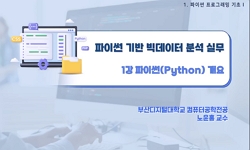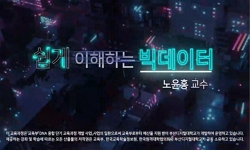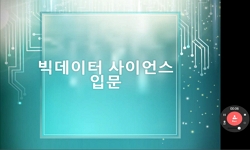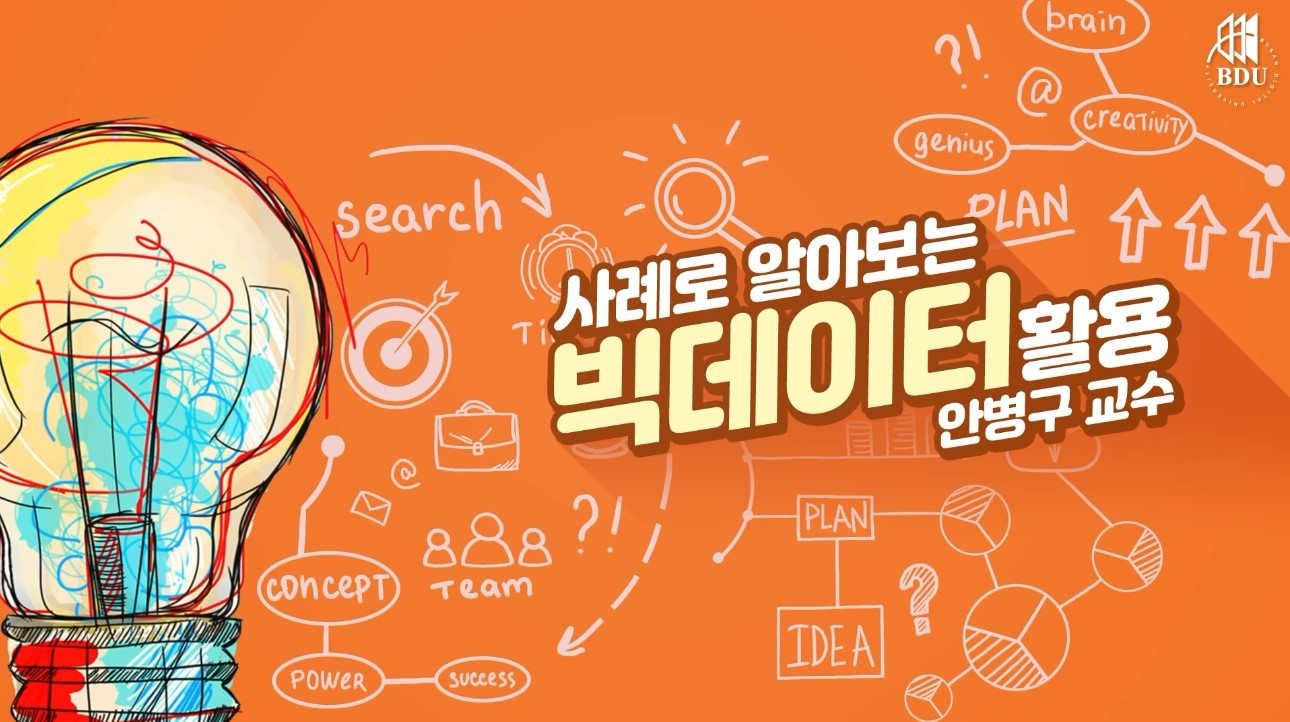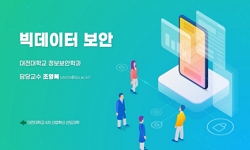This paper seeks ways to respond to the new movements in the methods of study of classical narratives, especially classical novels, and to reestablish the identity of a classical literature researcher as a humanities scholar. It is no exaggeration to ...
http://chineseinput.net/에서 pinyin(병음)방식으로 중국어를 변환할 수 있습니다.
변환된 중국어를 복사하여 사용하시면 됩니다.
- 中文 을 입력하시려면 zhongwen을 입력하시고 space를누르시면됩니다.
- 北京 을 입력하시려면 beijing을 입력하시고 space를 누르시면 됩니다.

고전서사 연구에서 연결성에 대한 논의의 현단계― 고전소설의 디지털 인문학적 연구 사례 검토를 중심으로 ― = The Current Stage of Discussions on Connectivity in Studies of Classical Narratives
한글로보기https://www.riss.kr/link?id=A107003467
-
저자
김나영 (동아대학교 젠더어펙트연구소)
- 발행기관
- 학술지명
- 권호사항
-
발행연도
2020
-
작성언어
Korean
-
주제어
디지털 인문학 ; 빅 데이터 ; 고전소설 연구 방법 ; 소현성록 ; 연결성 ; 정동적 실천 ; affect ; connectivity ; big date ; artificial intelligence ; digital humanities ; classical novel ; So Hyeon-seong nok Series
-
등재정보
KCI등재
-
자료형태
학술저널
-
수록면
243-289(47쪽)
-
KCI 피인용횟수
1
- DOI식별코드
- 제공처
-
0
상세조회 -
0
다운로드
부가정보
다국어 초록 (Multilingual Abstract)
This paper seeks ways to respond to the new movements in the methods of study of classical narratives, especially classical novels, and to reestablish the identity of a classical literature researcher as a humanities scholar.
It is no exaggeration to say that new approaches to classical literature studies have continuously been sought since the late 1990s and 2000s. This author remembers that in the late 20th century, the commercialization of computers and the revolution of knowledge and information based on the Internet prompted discourse on the “crisis of the humanities.” This perception of crisis influenced and led classical literary circles to contemplate a survival strategy not only for classical literature itself but for its researchers. However, while a clear answer has yet to be found, today is a time when even the usefulness of the humanities as science, unable to keep up with the pace of technological change, is questioned. At this moment when the Fourth Industrial Revolution concepts of big data, artificial intelligence, and the Internet of Things influence even the realm of humanities and call for change, how should research and researchers of classical novels and literature respond? With this question as a premise, this paper attempts to assess the interconnection of classical narrative studies by comparing and examining the results of two studies—traditional text research and digital technology-using research—on the classical novel, The Record of So Hyeon-seong.
The Record of So Hyeon-seong was written as part of the series along with The Story of the Three Generations of the So Family and heralded the beginning of full-length novels in Korea. Since many of its characters intertwine over three generations (centering on the figure of So Hyeon-seong) to develop the narrative, the book is also called a full-length novel on the record of three generations. It is also a work on which discussions from a variety of perspectives have accumulated since 1992. Of these discussions, the findings of a study using the computerized digital method between 2018 and 2019 is drawing attention. That joint study is being carried out by Gang Woo-gyu and Kim Ba-ro, who have conducted their research so far in two ways. One is a bibliographic study that compares the styles of the novel’s different versions and quantifies and visualizes the relationship of those versions to each other, in terms of impact, through quantitative analysis. The other is a narrative study that focuses on character emotions and interprets their narrative meanings by quantifying and visualizing the aspect and frequency of the appearance of those emotions.
Gang and Kim’s study has great significance for the literature research methods in the big data and digital era. First, it tells the importance of converting the text of classical novels into big data and constructing electronic document archives. In other words, Gang and Kim’s findings were made possible by the use of big data collected from the text of The Record of So Hyeon-seong and digital tools as well. This is closely related to the change in computerized knowledge structuralizing method in modern society, and furthermore, stimulates the critical mind for retaining data sovereignty on our cultural heritage. Second, although digital humanities research on classical novels is an urgent and important issue, it reaffirms that there is a narrative context of fiction that cannot be explained or analyzed by quantified numbers. In other words, it reaffirms that human intuition and insight can explain a world that cannot be analyzed and depicted by advanced technologies and methods (because the world of human life, the basis of fiction, is not that simple and uniform).
The trend of academic research is relative and flexible. It ceaselessly changes and derives new meanings from relationships past and future. Therefore, the more the concepts of big data, artificial intelligence, and digital tec...
국문 초록 (Abstract)
4차 산업혁명에 따른 빅 데이터, 인공지능, 사물인터넷의 개념이 인문학의 영역에까지 영향을 미쳐 변화를 촉구하는 이때, 고전소설 연구와 연구자는 어떤 자세로 이에 대응해야 할까. 본글...
4차 산업혁명에 따른 빅 데이터, 인공지능, 사물인터넷의 개념이 인문학의 영역에까지 영향을 미쳐 변화를 촉구하는 이때, 고전소설 연구와 연구자는 어떤 자세로 이에 대응해야 할까. 본글은 이 물음을 전제로, 디지털 인문학적 연구 방법을 적용하여 고전소설을 분석한 논문을 구체적으로 검토하였다. 그동안 축적되어 온 전통적 연구 방법에 의한 고전소설 분석 결과와 비교해봄으로써 데이터를 바탕으로 한 계량적 작품 분석의 가능성과 한계를 점검하여 그 해답의 실마리를 찾고자 하였다. 여기에는 현재와 미래, 고전소설 연구 방법과 연구자적 자세에 대한 시대적 연결성과 정동적 실천에 대한 고민이 담겨있다고전소설 <소현성록>을 대상으로 어휘와 문장의 빅 데이터화와 디지털 툴을 적용한 논문 4편을 검토하였다. 그동안 일부 문학 연구자들에 의해 진행된 고전소설의 새로운 연구 방법의 가능성을 보다 구체적으로 공유할 필요가 있다고 판단했기 때문이다. 전통적 문학 연구 방법에 익숙해지다 보면 새로운 변화의 흐름에서 스스로를 소외시키거나 배타적 태도를 취할 수 있다는 점을 인정하고 보다 생산적이고 긍정적인 연구자의 인식과 태도가 요구되는 시점임을 강조하고자 하였다.
학문 연구의 흐름도 상대적이고 유동적이다. 멈추지 않고 변화하며 이전과 이후의 관계 속에서 새로운 방법이 적용되고 의미를 도출해낸다. 때문에 빅 데이터, 인공지능, 디지털 등의 개념이 강조되고 중요하게 여겨질수록 그것이 감당하지 못하는 지점이 부각되는 것은 필연적이며, 인간의 신체적 능력을 바탕으로 한 전통적 인문학적 통찰의 필요성 또한 보다 절실히 요청되는 것은 당연한 결과이기도 하다. 여기에 현재와 미래의 고전소설 연구의 향방이 자리하고 있다.
참고문헌 (Reference)
1 김만수, "협업적 디지털스토리텔링 구축을 위한 인문학적 이론 토대" 한국문학이론과비평학회 14 (14): 319-346, 2010
2 김용수, "한국의 디지털인문학: 위기, 희망, 현실" 한국비평이론학회 22 (22): 41-62, 2017
3 정규식, "한국 고전문학 연구와 빅데이터(Big data)의 활용" 인문과학연구소 (75) : 68-94, 2015
4 멜리사 그레그, "정동 이론" 갈무리 2016
5 이용욱, "인문공학론(3) 지식공간과 디지털기억의 알고리즘" 한국언어문학회 (102) : 257-281, 2017
6 강우규, "인공지능을 활용한 <소현성록> 연작의 감정 연구" 한국문화융합학회 40 (40): 149-174, 2018
7 김성문, "인공지능 시대와 고전문학" 한국문화융합학회 40 (40): 129-154, 2018
8 정선희, "영웅호걸형 가장(家長)의 시원(始原) - <소현성록>의 소운성" 한국고소설학회 (32) : 153-186, 2011
9 강우규, "소현성록 연작의 문체론적 고찰 -컴퓨터를 활용한 계층분석을 바탕으로" 인문과학연구소 (59) : 29-46, 2018
10 조혜란, "소현성록 1-4" 소명출판 2012
1 김만수, "협업적 디지털스토리텔링 구축을 위한 인문학적 이론 토대" 한국문학이론과비평학회 14 (14): 319-346, 2010
2 김용수, "한국의 디지털인문학: 위기, 희망, 현실" 한국비평이론학회 22 (22): 41-62, 2017
3 정규식, "한국 고전문학 연구와 빅데이터(Big data)의 활용" 인문과학연구소 (75) : 68-94, 2015
4 멜리사 그레그, "정동 이론" 갈무리 2016
5 이용욱, "인문공학론(3) 지식공간과 디지털기억의 알고리즘" 한국언어문학회 (102) : 257-281, 2017
6 강우규, "인공지능을 활용한 <소현성록> 연작의 감정 연구" 한국문화융합학회 40 (40): 149-174, 2018
7 김성문, "인공지능 시대와 고전문학" 한국문화융합학회 40 (40): 129-154, 2018
8 정선희, "영웅호걸형 가장(家長)의 시원(始原) - <소현성록>의 소운성" 한국고소설학회 (32) : 153-186, 2011
9 강우규, "소현성록 연작의 문체론적 고찰 -컴퓨터를 활용한 계층분석을 바탕으로" 인문과학연구소 (59) : 29-46, 2018
10 조혜란, "소현성록 1-4" 소명출판 2012
11 이재연, "세계 디지털인문학의 현황과 전망" 커뮤니케이션북스 1-54, 2019
12 진재교, "빅 데이터와 디지털 동아시아학의 가능성 ― ‘동아시아 지식과 지식인 지도’를 중심으로" 대동문화연구원 (98) : 119-162, 2017
13 한동현, "문화콘텐츠학의 새로운 포지셔닝 : 디지털 인문학" 한국현대문예비평학회 (40) : 299-325, 2013
14 임형택, "문학미디어와 문학사 연구 -가능성의 문학사와 다차원의 ‘문학사 디지털 웹’-" 한민족문화학회 57 (57): 95-124, 2017
15 김현, "디지털 인문학과 고문헌 자료 연구" 열상고전연구회 (50) : 13-38, 2016
16 김현, "디지털 시대의 漢文學 -데이터로 소통하는 고전 인문 지식-" 근역한문학회 49 : 9-42, 2018
17 정성훈, "디지털 시대, 확산매체와 성공매체 사이의 긴장" 인문학연구원 (51) : 9-44, 2016
18 이도흠, "동아시아 문학, 새로운 패러다임과 방법론" 한국비교문학회 (77) : 85-117, 2019
19 김현, "데이터 기반 인문학 연구 방법의 모색*: 문중 고문서 아카이브와 디지털 인문학의 만남" 인문학 연구소 (1) : 17-61, 2018
20 김승범, "고전문학의 비교 연구를 위한 빅 데이터 활용 방안" 어문연구학회 167-182, 2016
21 이정훈, "고전 번역 텍스트의 데이터 분석기술 적용과 한계 - 삼국유사 오카피 적용 구술녹취록 분석을 중심으로 -" 한국문화융합학회 40 (40): 155-184, 2018
22 최기숙, "고소설의 감성 문법과 감정 기호 - <소현성록>의 감정 수사를 중심으로" 한국고소설학회 (39) : 103-139, 2015
23 강우규, "계량적 문체 분석을 통한 <소현성록> 연작의 변이양상 고찰 - 이대15권본과 규장각21권본을 중심으로 -" 국제어문학회 (80) : 115-135, 2019
24 정선희, "가부장제하 여성으로서의 삶과 좌절되는 행복 − <소현성록>의 화부인을 중심으로 −" 동양고전연구소 (20) : 57-84, 2011
25 이지하, "<소현성록>의 이중성에 내재된 욕망의 실체" 반교어문학회 (40) : 237-269, 2015
26 정선희, "<소현성록>에서 드러나는 남편들의 폭력성과 서술 시각" 한국고전여성문학회 0 (0): 452-487, 2007
27 임치균, "<소현성록>에 나타난 혼인의 양상과 의미" 한국고전연구학회 0 (0): 29-48, 2006
28 조혜란, "<소현성록>에 나타난 가문의식의 이면 -반복 서술을 중심으로-" 한국고소설학회 (27) : 73-107, 2009
29 서정민, "<소현성록> 이본간의 변별적 특징과 그 산출 시기" 인문과학연구소 54 (54): 493-512, 2015
30 강우규, "<소현성록> 연작에 나타난 감정의 출현 빈도와 의미 — 컴퓨터를 활용한 통계학적 분석을 바탕으로 —" 온지학회 (56) : 101-128, 2018
31 한광택, "4차 산업혁명과 인문학 교육의 미래" 한국비평이론학회 23 (23): 37-60, 2018
동일학술지(권/호) 다른 논문
-
중국의 우라늄 광상 탐사와 개발 소론, 1943-1960
- 성신여자대학교 인문과학연구소
- 채준형
- 2020
- KCI등재
-
- 성신여자대학교 인문과학연구소
- 장진호
- 2020
- KCI등재
-
- 성신여자대학교 인문과학연구소
- 문상명
- 2020
- KCI등재
-
- 성신여자대학교 인문과학연구소
- 김민수
- 2020
- KCI등재
분석정보
인용정보 인용지수 설명보기
학술지 이력
| 연월일 | 이력구분 | 이력상세 | 등재구분 |
|---|---|---|---|
| 2028 | 평가예정 | 재인증평가 신청대상 (재인증) | |
| 2022-01-01 | 평가 | 등재학술지 유지 (재인증) |  |
| 2019-01-01 | 평가 | 등재학술지 선정 (계속평가) |  |
| 2018-01-01 | 평가 | 등재후보학술지 유지 (계속평가) |  |
| 2017-01-01 | 평가 | 등재후보학술지 유지 (계속평가) |  |
| 2016-01-01 | 평가 | 등재후보학술지 유지 (계속평가) |  |
| 2015-01-01 | 평가 | 등재후보학술지 유지 (계속평가) |  |
| 2013-01-01 | 평가 | 등재후보학술지 유지 (기타) |  |
| 2012-01-01 | 평가 | 등재후보학술지 유지 (기타) |  |
| 2011-01-01 | 평가 | 등재후보학술지 유지 (등재후보1차) |  |
| 2009-01-01 | 평가 | 등재후보학술지 선정 (신규평가) |  |
학술지 인용정보
| 기준연도 | WOS-KCI 통합IF(2년) | KCIF(2년) | KCIF(3년) |
|---|---|---|---|
| 2016 | 0.32 | 0.32 | 0.33 |
| KCIF(4년) | KCIF(5년) | 중심성지수(3년) | 즉시성지수 |
| 0.46 | 0.49 | 0.732 | 0.5 |




 KCI
KCI KISS
KISS